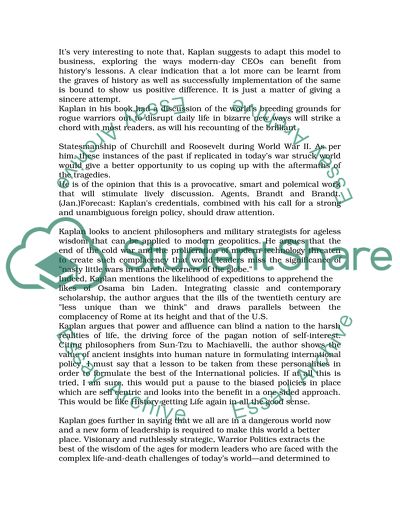Robert Kaplan's Warrior Politics Essay Example | Topics and Well Written Essays - 2500 words. https://studentshare.org/literature/1704058-history-as-a-guidance-for-future
Robert Kaplan'S Warrior Politics Essay Example | Topics and Well Written Essays - 2500 Words. https://studentshare.org/literature/1704058-history-as-a-guidance-for-future.


